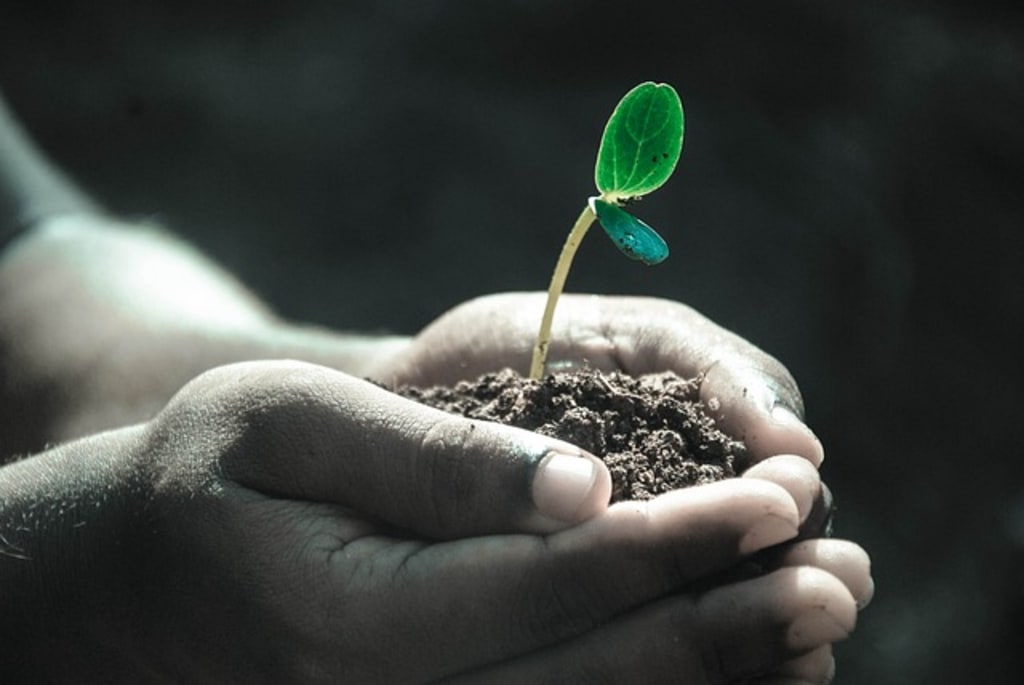
Introduction:
In recent years, the trend of growing plants at home has gained tremendous popularity. From small potted herbs to sprawling indoor gardens, more and more people are recognizing the numerous benefits of nurturing plants within their living spaces. Beyond the aesthetic appeal, cultivating plants at home provides a wide range of advantages for physical, mental, and environmental well-being. In this article, we will explore six key benefits of growing plants at home.
Improved Indoor Air Quality:
One of the most significant advantages of having plants indoors is their ability to enhance air quality. Plants naturally filter and purify the air by absorbing harmful pollutants and releasing oxygen. Through a process known as photosynthesis, plants absorb carbon dioxide and release oxygen, thus creating a healthier and more oxygen-rich environment indoors. Additionally, certain plants, such as spider plants, peace lilies, and pothos, are particularly effective in removing toxins like formaldehyde, benzene, and trichloroethylene from the air, thereby reducing the risk of respiratory issues and improving overall well-being.
Stress Reduction and Enhanced Mental Health:
The presence of plants in our living spaces has been shown to have a positive impact on mental health and well-being. Studies have indicated that being around plants can help reduce stress levels, lower blood pressure, and promote feelings of calmness and relaxation. Indoor gardening and tending to plants provide a form of therapeutic activity that allows individuals to unwind and focus their attention on nurturing and caring for living organisms. Furthermore, the green color of plants has been linked to improved mood and increased productivity, making them an ideal addition to any home or workspace.
Access to Fresh, Organic Produce:
Growing your own food at home provides access to fresh and organic produce, promoting a healthier lifestyle. Whether it's a windowsill herb garden, a vegetable patch in the backyard, or a vertical garden on the balcony, homegrown fruits, vegetables, and herbs offer superior taste, nutritional value, and the satisfaction of knowing precisely how they were grown. By cultivating your food, you reduce your reliance on store-bought produce, potentially decreasing exposure to pesticides and other harmful chemicals. This not only benefits your health but also encourages sustainable and environmentally friendly practices.
Educational and Skill-Building Opportunities:
Growing plants at home can be a valuable educational experience for both adults and children alike. It offers a hands-on opportunity to learn about the life cycle of plants, botanical science, and the importance of environmental conservation. For children, gardening fosters a sense of responsibility, patience, and the joy of seeing something grow from seed to harvest. It also encourages healthy eating habits by connecting them with nature and the sources of their food. Adults can also benefit from the learning experience, honing skills such as problem-solving, planning, and nurturing, while gaining a deeper appreciation for the natural world.
Enhanced Home Decor and Ambiance:
Plants serve as natural decor elements, adding beauty, color, and texture to indoor spaces. They have the power to transform a dull and lifeless area into a vibrant and inviting oasis. With countless plant varieties to choose from, individuals can create personalized displays that match their style and preferences. From hanging plants cascading from shelves to large statement plants as focal points, the possibilities are endless. Plants also contribute to a soothing and calming ambiance, making any room feel more welcoming and refreshing.
Environmental Benefits:
Growing plants at home contributes to environmental sustainability by reducing the carbon footprint associated with transportation, packaging, and waste generated from store-bought produce. Home gardening promotes eco-conscious practices, such as composting organic waste, conserving water through mindful watering techniques, and utilizing natural pest control methods. Moreover, the presence of plants indoors increases humidity levels, making the air more comfortable and reducing the






Comments
There are no comments for this story
Be the first to respond and start the conversation.